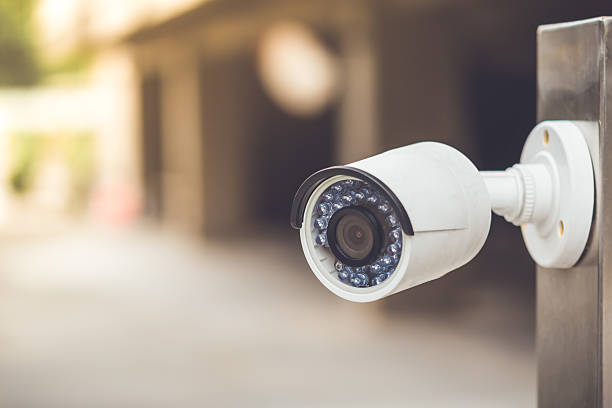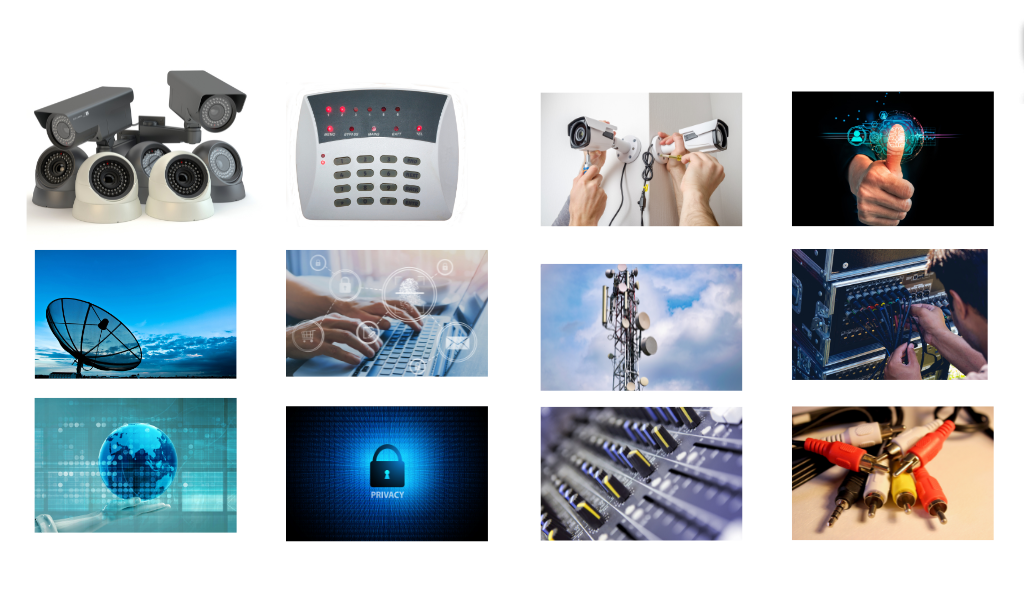What IP Cameras Offer for Modern Home and Office Security

As the world becomes increasingly connected, the need for robust and reliable security systems has never been greater. For homeowners and businesses alike, ensuring the safety of their property, employees, and loved ones is a top priority. One of the most significant advancements in modern security technology is the rise of Internet Protocol (IP) cameras. These devices have revolutionized surveillance, offering unparalleled advantages over traditional CCTV systems. In this article, we will explore what IP cameras bring to modern home and office security, shedding light on their unique features and benefits. To ensure you get the best solution for your needs, trust the Best Security company to provide expert advice and professional installation.
The Rise of IP Cameras in Modern Security
IP cameras, also known as network cameras, are digital video surveillance devices that use the internet or local network to transmit and receive data. Unlike traditional CCTV cameras, which rely on coaxial cables for video transmission, IP cameras operate through Ethernet cables or Wi-Fi connections, making them more flexible and capable of delivering high-quality video feeds.
The integration of IP cameras into security systems has made it easier for property owners to monitor their premises remotely, access video footage in real-time, and manage their security networks more effectively. The growing demand for smart homes and automated offices has fueled the adoption of IP cameras, which offer seamless integration with other security devices and smart technologies.
High-Resolution Video Quality for Enhanced Monitoring
One of the most significant advantages of IP cameras over traditional CCTV systems is their ability to provide high-definition video quality. Most modern IP cameras offer resolutions ranging from 720p to 4K, ensuring that the footage is crystal clear and provides exceptional detail. This level of image quality is particularly beneficial for identifying faces, reading license plates, and capturing finer details in and around your property.
For homeowners, this means that you can have greater peace of mind knowing that your surveillance system can provide accurate images, even in low-light conditions. For businesses, high-resolution footage is crucial for monitoring activity in and around the premises, providing clear evidence in case of theft, break-ins, or other security breaches.
Remote Access and Monitoring Capabilities
One of the key benefits of IP cameras is their ability to be accessed remotely from anywhere with an internet connection. Whether you’re at home, at work, or traveling abroad, you can monitor your property in real time using a smartphone, tablet, or computer. This feature is especially useful for business owners who need to keep an eye on their offices or storefronts when they are not physically present.
Many IP cameras come with dedicated mobile apps or cloud-based platforms that allow you to view live feeds, review recorded footage, and even control camera settings remotely. This level of flexibility and convenience ensures that you can always stay connected to your security system, no matter where you are.
Flexible Installation and Scalability
IP cameras offer much more flexibility in terms of installation compared to traditional CCTV systems. Since IP cameras transmit data over a network, they don’t require the complex wiring associated with analog systems. This makes the installation process quicker, more straightforward, and less invasive. Whether you opt for wired or wireless IP cameras, you can easily install them in virtually any location, including areas that may be difficult to reach with traditional camera setups.
Moreover, IP camera systems are highly scalable. If you need to expand your security system, you can easily add additional cameras to the network without the need for extensive rewiring or hardware upgrades. This scalability makes IP Security cameras an ideal choice for businesses that may need to increase coverage as their operations grow. For homeowners, it means that you can start with a basic setup and later add more cameras as your security needs evolve.
Motion Detection and Smart Alerts
Modern IP cameras come equipped with advanced motion detection technology that can be customized to meet the specific needs of the user. These cameras can be set to detect motion in specific areas, such as doorways, windows, or entryways, and send alerts when movement is detected. Some IP cameras even have the ability to differentiate between humans, animals, and objects, reducing the number of false alarms.
For homeowners, this feature adds an extra layer of security, as it allows you to be notified immediately if something unusual is happening around your property. For business owners, it can be crucial for monitoring after-hours activity, such as unauthorized access or suspicious movements in restricted areas.
The integration of smart alerts further enhances the functionality of IP cameras. Many systems allow you to receive notifications via email, SMS, or push notifications, ensuring that you are promptly alerted to any potential security issues.
Integration with Other Smart Devices
One of the most appealing features of IP cameras is their ability to integrate with other smart home or office devices. Through compatibility with platforms like Amazon Alexa, Google Assistant, or smart home hubs, IP cameras can become a central part of a broader security ecosystem. This integration allows for automated actions, such as turning on lights when motion is detected, locking doors, or activating alarms.
For instance, if an IP camera detects motion outside your home, it can trigger a smart light to turn on, making it appear as if someone is home. Similarly, in an office setting, the camera can work in conjunction with security alarms or access control systems to provide a comprehensive security solution that enhances both monitoring and response.
Cloud Storage and Data Security
Another key benefit of IP cameras is their ability to store video footage securely in the cloud. Many modern IP cameras offer cloud storage options, allowing you to store and access video recordings without the need for physical storage devices such as hard drives or SD cards. Cloud storage provides several advantages, including remote access to recordings, automatic backups, and increased security.
With cloud storage, you don’t have to worry about losing footage due to theft, hardware failure, or damage. The data is securely stored in a remote server, ensuring that it remains accessible even if your local system is compromised. Many cloud services also offer encryption, adding an extra layer of protection for your sensitive security data.
Cost-Effectiveness and Long-Term Investment
While the initial investment in IP cameras may be higher than traditional CCTV systems, the long-term benefits far outweigh the costs. The high-resolution video quality, ease of installation, scalability, and remote access capabilities make IP cameras a worthwhile investment for homeowners and business owners alike. Additionally, as technology advances, the cost of IP cameras has steadily decreased, making them more affordable for a wide range of users.
For businesses, the ability to expand the system as needed and integrate it with other smart technologies means that IP cameras provide a flexible, future-proof solution. Homeowners can enjoy the peace of mind knowing that their security system will be reliable and capable of evolving with their needs.
Conclusion
IP cameras have transformed the landscape of modern security, offering unparalleled advantages in terms of video quality, flexibility, remote access, and scalability. Whether you’re looking to secure your home or office, IP cameras provide a reliable, advanced solution that meets the demands of today’s digital age. With features such as motion detection, cloud storage, smart alerts, and seamless integration with other devices, IP cameras offer everything you need to ensure the safety and security of your property.



